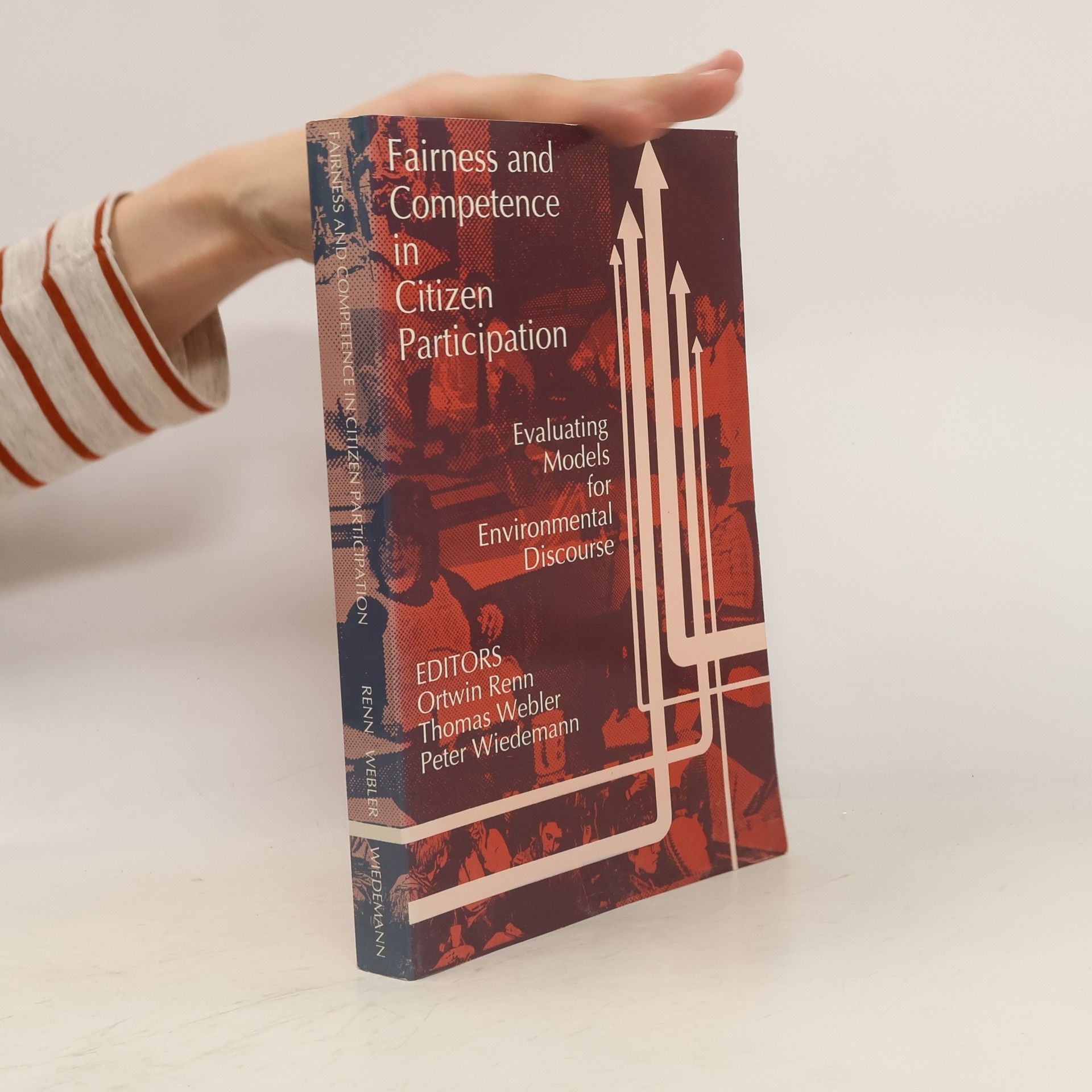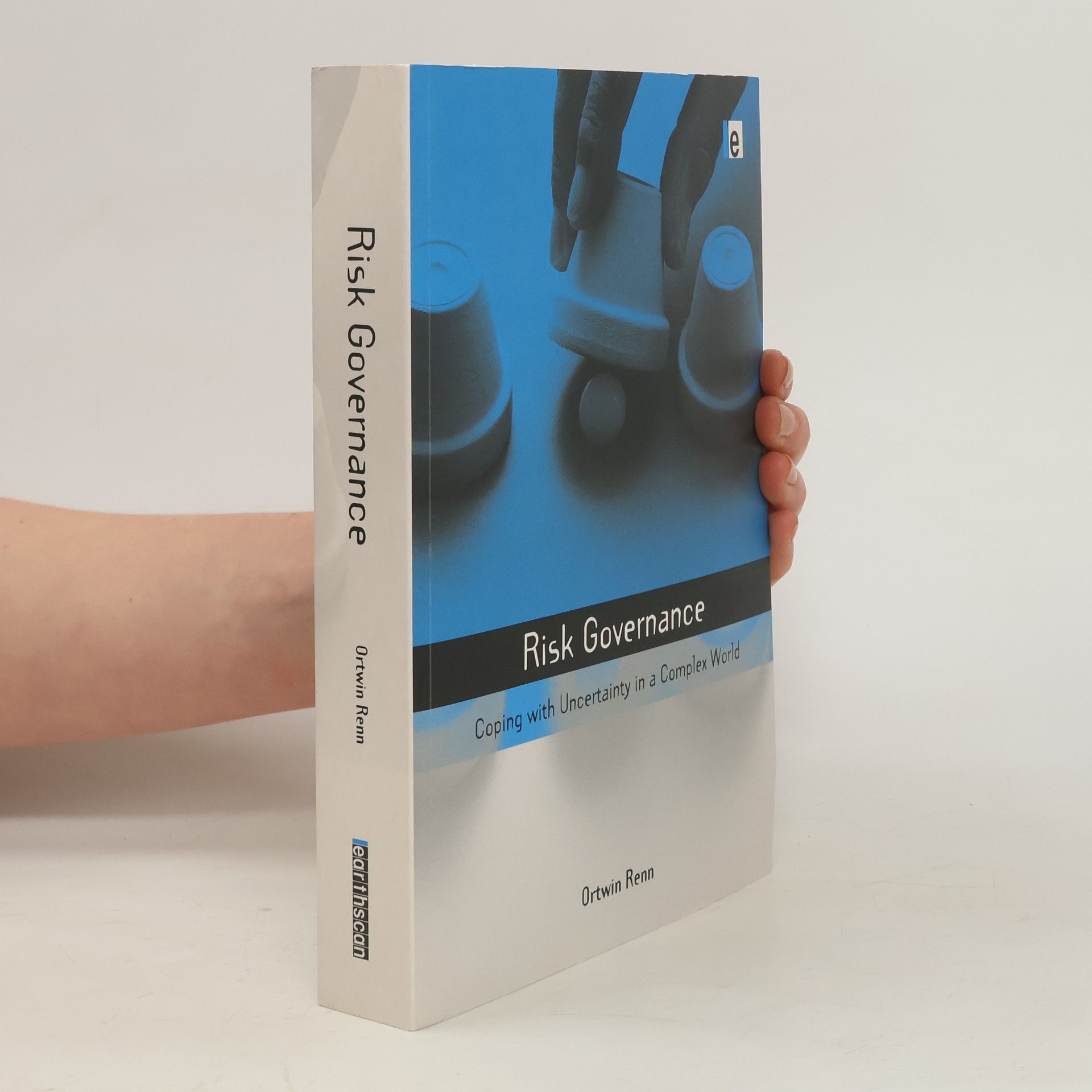Ortwin Renn Book order (chronological)






Populistische Strömungen gewinnen weltweit an Resonanz, gleichzeitig beobachten wir ein tiefes Misstrauen in die Problemlösungsfähigkeit der Politik, in die Fairness der Wirtschaft und die Unabhängigkeit der Wissenschaft. Der Soziologe und Risikoforscher Ortwin Renn führt diese Tendenzen auf gesellschaftliche Verunsicherung angesichts gesellschaftlicher Veränderung und Komplexität zurück. In seinem Buch untersucht er die aktuellen gesellschaftlichen Ängste, ihre Ursachen und Folgen. Aufklärend zielt Renn darauf, Verunsicherung abzubauen. Zudem will Renn mit diesem Buch mehr Zuversicht in die Leistungskraft der zentralen gesellschaftlichen Institutionen, aber auch mehr Zutrauen in die eigene Gestaltungskraft wecken. Das Buch beschäftigt sich mit den Ängsten in unserer Gesellschaft, ihrer Wahrnehmung, ihren Gründen und ihrer Wirkung. Was ängstigt die Menschen derzeit genau? Was bedroht uns? Woher kommen diese Ängste? Wie können wir – individuell und kollektiv – besser damit umgehen? Und was macht es mit unserer Gesellschaft, wenn die Angst zu mächtig wird?
Was uns wirklich bedroht und wie wir richtig damit umgehen Nahezu täglich bringen uns die Medien neue Hiobsbotschaften: steigende Kriminalität, Vogelgrippe oder Elektrosmog. Wird unser Leben nicht immer gefährlicher, unsicherer, risikoreicher? Ortwin Renn, der international anerkannte Risikoforscher und renommierte Technik- und Umweltsoziologe, sagt: nein. Die durchschnittliche Lebenserwartung steigt beständig, in vielerlei Hinsicht geht es uns immer besser. Wie fürchten uns, so Renn, vor „falschen“ Gefahren, verschließen aber die Augen vor Risiken, die uns und unsere Nachwelt erheblich bedrohen. Renn zeigt, welches diese sind, warum wir sie unterschätzen und wie wir im Sinne der Nachhaltigkeit verantwortungsvoll damit umgehen können.
The book offers a comprehensive exploration of risk handling by integrating key concepts from various disciplines, including social, engineering, and natural sciences. It progresses through topics such as assessment, evaluation, and management, ultimately addressing the shift from risk management to governance. A significant focus is on systemic risks, particularly those associated with genetically modified organisms, emphasizing their complexity and broader societal impacts. This work is vital for researchers and professionals in multiple fields seeking to understand contemporary risk dynamics.
Ob Terror, Nanotechnologie oder Klimawandel - die Öffentlichkeit ist häufig einem Wechselbad aus Schreckensnachrichten, euphorischen Innovationsberichten, Dramatisierungen und Verharmlosungen ausgesetzt. Die Folge ist schlichtweg Verunsicherung. Das Wirrwarr sich widersprechender Aussagen wirft Fragen auf: Welche Risiken birgt die moderne Welt wirklich? Wie kann man Risiken messen und bewerten? Können Frühwarnsysteme helfen, um Lebensmittelkrisen, Umweltschäden oder Naturkatastrophen zu verhindern? Dieses Buch gibt wissenschaftlich fundierte, praxisnahe und politisch umsetzbare Antworten. Im Vordergrund steht die Integration unterschiedlicher Disziplinen, die sich mit dem vielseitigen Begriff »Risiko« befassen - von der Berechnung der Eintrittswahrscheinlichkeit bis zur menschlichen Reaktion auf riskante Situationen. So entstand das erste deutschsprachige Standardwerk zu Risikoanalyse, -wahrnehmung und -management. Es präsentiert ein umfassendes sozial-ökologisches Konzept, wie die Gesellschaft Risiken erfassen und ihnen adäquat begegnen kann.
Fairness and Competence in Citizen Participation
- 400 pages
- 14 hours of reading
An issue facing the citizens and governments of modern democracies is the direct participation of the public in the solution of environmental problems. This text provides a basis for the evaluation of models for envrionmental discourse which covers eight regions from North America and Europe.

